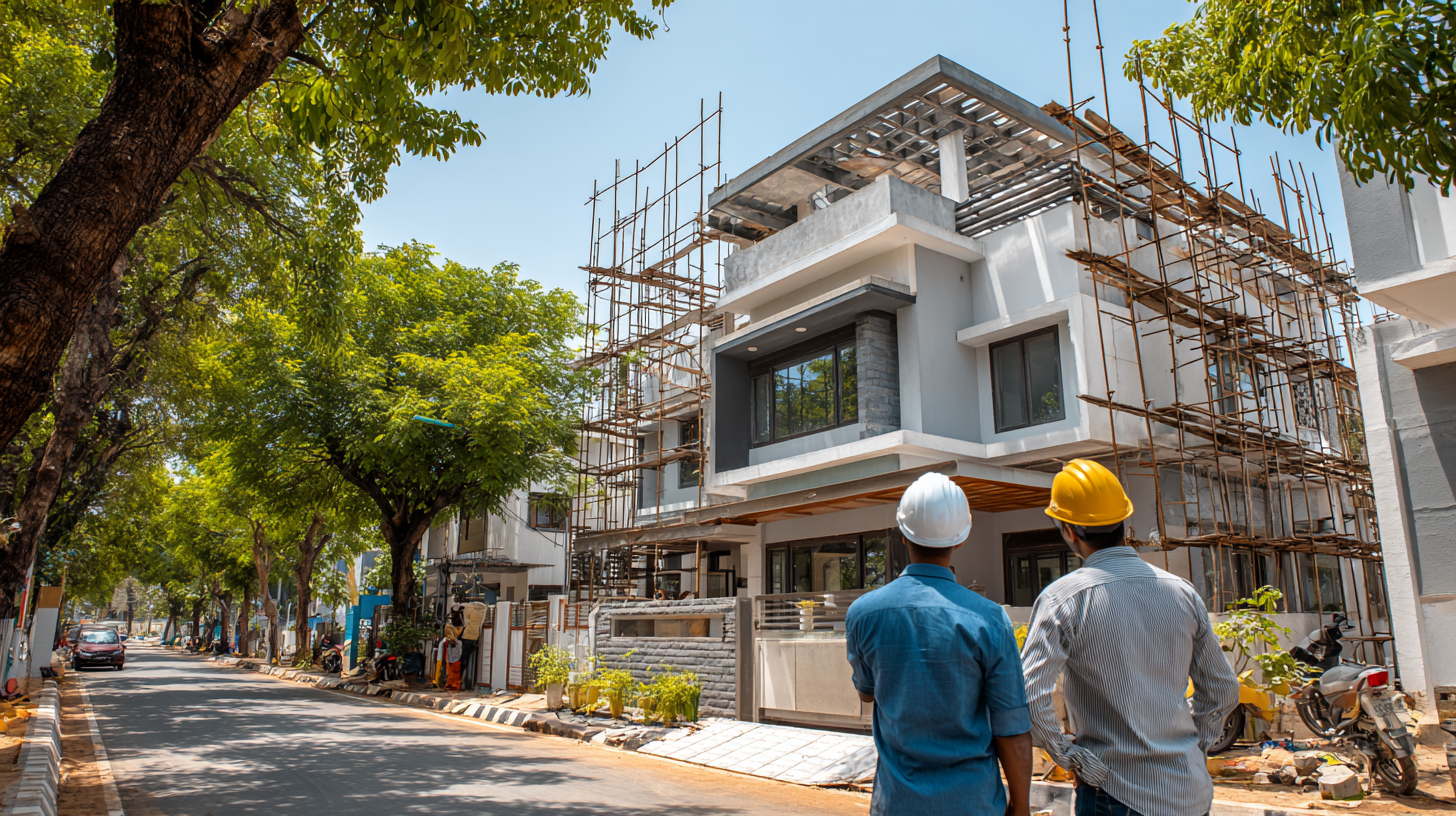
Build or Buy? What’s the Best Move for Your Next Home
Owning a home is a significant milestone, whether you’re a first-time homebuyer, a real estate investor, or a growing family. One of the first big decisions you’ll face is this: should you build a brand-new home or buy an existing one? Each option has its benefits and challenges.
We’ll walk you through both options, helping you decide what’s right for you based on your budget, timeline, and the way you want to live.
The Case for Building a New Home
Constructing a new home allows you to shape every detail to match your taste, offering a fresh, modern space designed around your needs and preferences.
1. Customization
When you build your home, you have the freedom to design it exactly as you like. From the layout to the materials and the finishes, you can personalize every aspect to match your preferences and lifestyle.
You get the freedom to design your space just the way you want—whether that means adding more storage, going for an open-concept kitchen, or including standout architectural elements. This kind of flexibility makes your new home truly reflect your lifestyle and needs.
2. Energy Efficiency & Technology
Modern construction methods focus heavily on energy efficiency. New homes are built with better insulation, energy-saving appliances, and the potential to integrate smart home technologies.
This means lower utility bills in the long run and a more sustainable living environment. Features like solar panels, smart thermostats, and energy-efficient windows have become standard in newly constructed homes.
3. Fewer Repairs & Maintenance
Since everything is newly built, your home will need minimal repairs and upkeep in the early years. New appliances, roofing, plumbing, and electrical systems offer peace of mind—unlike older homes, where maintenance issues can start to add up fast.
4. Warranties & Guarantees
One of the significant perks of building a new home is the warranties often provided by construction companies. These warranties typically cover the structure, appliances, and sometimes even minor repairs or adjustments for a set period post-construction.
This extra peace of mind makes the journey of owning a new home much less stressful.
The Case for Buying an Existing Home
Purchasing a pre-owned home comes with its perks—especially if you’re looking for a quicker move and a neighborhood that’s already well-developed.
1. Faster Move-In Timeline
Forget the long wait that comes with building from scratch—when you buy an existing home, you can usually move in soon after closing the deal.
This is an excellent option if you’re pressed for time or need a home ready for occupancy within weeks rather than months.
2. Established Neighborhoods
Buying an existing home often means you’ll settle in a well-established area with mature landscapes, schools, shopping centers, and public transportation.
These neighborhoods are likely to have a sense of community that newer developments often lack in the early years.
3.Potential Cost Savings
Buying an existing home can often be more budget-friendly, especially with the increasing costs of construction materials and labor.
Furthermore, the listing price often includes completed landscaping, fencing, and other elements you would need to budget for in a new build.
4. Room for Renovation
If personalization is still important, buying an existing home doesn’t mean you can’t make it yours. Many homebuyers love the challenge of renovating over time to align the space with their tastes.
Projects like upgrading bathrooms, redesigning the kitchen, or even expanding rooms allow you to upgrade the home at your pace and budget.
Cost Comparison: Build vs. Buy
Here’s a quick breakdown to give you a better idea about the costs involved in building versus buying a home.
Building a Home
- Costs Include: Land purchase, permits, construction, materials, labor, inspections, and landscaping.
- Hidden Costs: Delays in construction, rising material prices, and unexpected zoning issues.
- Example: For a construction company in Chennai, building costs are typically higher due to premium material prices and urban zoning requirements.
Buying an Existing Home
- Costs Include: Purchase price, inspection fees, any immediate repairs, and moving expenses.
- Hidden Costs: Necessary renovations, higher utility costs (due to older appliances and features), and potential structural issues.
Financing Options for Both Scenarios
Whether you choose to build or buy, chances are you’ll need financing to make it happen.
Home Construction Loans
These loans work differently from a traditional mortgage. Funds are disbursed in stages, matched to the milestone progress of the construction.
Construction loans often have slightly higher interest rates and stricter qualification requirements. Some financial institutions (such as those in Chennai) specialize in offering customized construction loans to meet specific regional needs.
Mortgages for Existing Homes
Traditional mortgages are more straightforward and come with lower interest rates and simpler qualification processes. Buyers can also shop around for programs tailored to first-time homebuyers or investors.
Key Factors to Consider Before Deciding
Ask yourself these key questions before making your move.
- What is your overall budget and financial stability?
- How quickly do you need to move into your new home?
- Are you aiming for a specific location, and what options are available there?
- Are you ready to manage a construction project with its inevitable ups and downs?
- Is this a long-term investment or a short-term solution?
Your answers to these questions will help guide you toward the best decision for your specific situation.
Expert Advice: When to Build, When to Buy
- Build if you value customization, modern features like energy efficiency, and long-term planning for your dream home.
- Buy if you need a move-in-ready home, want to live in an established neighborhood, or are working with a fixed budget.
Make the Right Move for Your Future
If you’re feeling unsure, it might help to chat with a local construction company in Chennai, a real estate agent, or a financial advisor who can guide you through the process with confidence.



